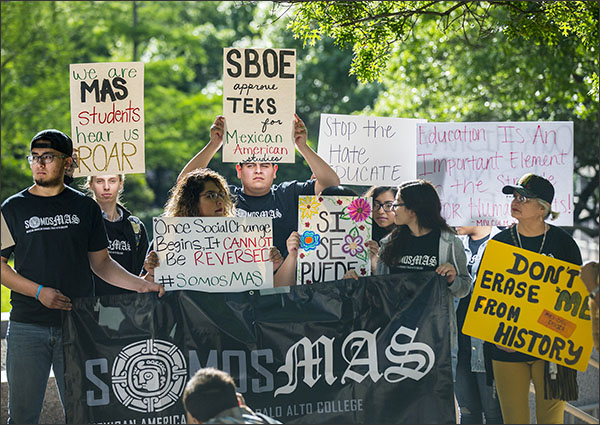
Texas Rep. Christina Morales, a Houston Democrat, knows her quest to pass a bipartisan bill requiring Mexican American and Black studies in school has gotten tougher. But then, she said, history abounds with Latinos and others succeeding amid seemingly insurmountable barriers.
“My grandparents had the first Latino-owned funeral home and the first Spanish-language radio station in the entire Gulf Coast,” Morales said.
“So many kids in our community … they need hope in seeing people who look like them and share similar stories of how they overcame obstacles and became leaders in the community,” said Morales.
Mexican American and African American studies are already elective courses in Texas but are not offered in its 1,250 school districts. Currently, 63 districts teach Mexican American studies, and 58 teach African American studies.
The bill, reintroduced by Morales, would require all districts to offer the courses as social studies options in addition to world history and geography. The bill would also allow the courses to count toward graduation credit.
The reintroduced legislation is not guaranteed an easy path. Texas lawmakers have reconvened amid campaigns in GOP-controlled states, including Texas, to contain or limit teaching on race and to end programs aimed at diversity and inclusion.
Attacks on ethnic studies and diversity initiatives have become a rallying cry for potential 2024 GOP presidential candidates who hope to rouse their party’s right-wing base.
When asked about her confidence in getting the bill on the governor’s desk and signed, Morales said, “I know that we have some challenges ahead of us, but in the face-to-face conversations I’ve had with some members, I do feel there are enough moderates still to get this bill to the finish line.”
According to the Pew Research Center, most of the state’s Latinos are of Mexican descent. The Census Bureau estimated that the number of Latinos in Texas had surpassed non-Latino whites in the state. Texas has the nation’s highest Black population — almost 4 million, or about 14% of Texas’s total population.
Lawmakers have acknowledged they had a more challenging political terrain to navigate with this bill.
Rep. Trey Martinez Fischer, who heads the Texas Democratic Caucus, said threats to college campuses regarding diversity and inclusion come with every news cycle, and “everyone seems to be walking on eggshells.” Despite “the odds and the headwinds,” the legislation is not meant to pit Republicans against Democrats or people of color against one another, he said.
Rep. Ron Reynolds, chairman of the Texas Black Caucus, said passage of the bill could begin to heal the fractures in the state caused by bickering over diversity, equity, and inclusion programs.
“Every (ethnic) community in our state has contributed to the success of our neighborhood, our city, and our nation,” Morales said. “We need to tell a robust story when it comes to our history.”

Recent Comments